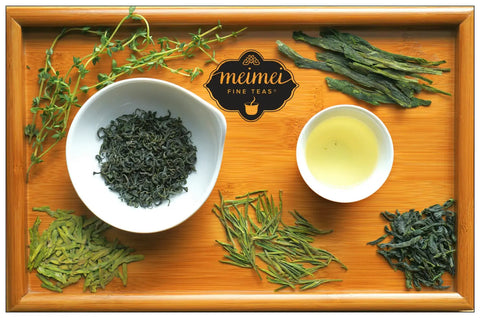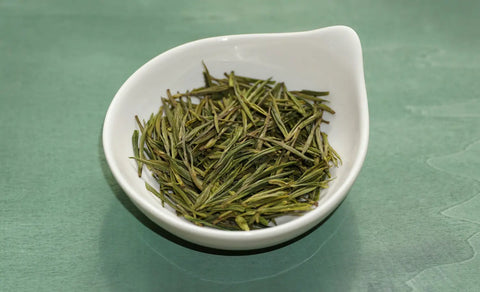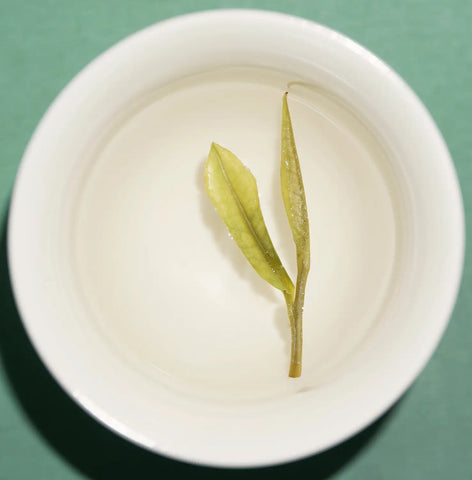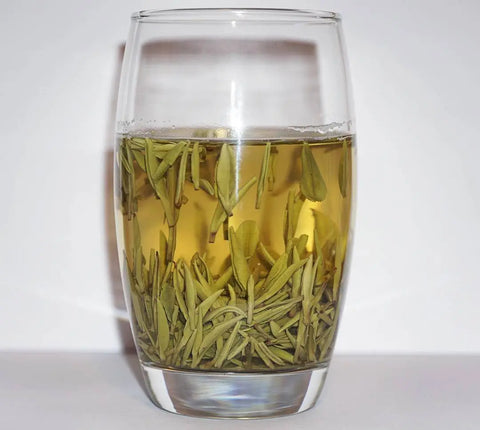
Should You Microwave Your Tea?
Articles have been making their rounds across the internet recently, such as one by Huffington Post, which appear to be citing an Australian study from the University of Newcastle that suggests that microwaving your tea might be the best way to prepare it. In an effort to sort fact from fiction, we’re here to clear up the confusion for you.

The Study
First, the study looked at the chemicals extracted from a green tea bag when prepared with 200mL of boiling water for 2-3 minutes. The typical tea bag contains 2-3 grams of tea.
It’s worth pointing this out because traditional green tea preparation is very different. We usually recommend approximately 4 grams as well as lower temperatures and shorter steeping times. This allows one to enjoy the tea across multiple infusions throughout the day. We’ll discuss the importance of this in a moment.

So what did the researchers find?
Under the conditions mentioned above, the cup of tea was discovered to yield approximately 62% of its catechin content, 76% of its caffeine content, and 80% of its l-theanine content. By contrast, if the cup of tea was infused with boiling water for only 30 seconds and then placed in a microwave for 60 seconds, the green tea yielded 80% of its catechin content, 92% of its caffeine content, but still just 80% of its l-theanine content.
In more concrete terms, the differences are a little less impressive. A 2.5 gram bag of green tea that was infused with boiling water for 2-3 minutes would yield approximately 150 mg of catechins, 60 mg of caffeine, and 25 mg of l-theanine. The microwaved cup of green tea would yield 200 mg of catechins, 75 mg of caffeine, and 25 mg of l-theanine.
As you can see, although measurable, the difference between the two is relatively small.

What are these chemicals and why are they important?
There are several different kinds of catechins found in green tea, and they are antioxidants that are being studied in isolation for possible health benefits. The most notable catechin is known as “ECGC,” often found in high amounts in “green tea extract” supplements.
In supplements, the average amount of ECGC alone is usually 100-300 mg, with total catechin content varying between 400-700 mg. Most of the health benefits found in studies appear to be very minor and unreliable, even at these higher doses. For antioxidant purposes though, the most benefit for general health and well-being appears to be found when consumed in smaller doses throughout the day.
Caffeine is a stimulant that is frequently associated with coffee intake. The average cup of coffee contains approximately 100 mg of caffeine, but this can vary pretty wildly above and below this number. It is generally desired for its ability to promote alertness, but the body can become sensitized to its effects if it is ingested regularly.
Finally, L-theanine is an amino acid that is being studied for its effects on promoting a sense of relaxation while reducing stress and improving attention. As one would expect, the dose of l-theanine used in these studies and found in supplements is far higher than one would find in a cup of green tea, ranging from 100-200 mg.

The “Healthy” Alternative?
Part of the reason for mentioning the dose of these chemicals when they are used in studies or found in supplements is to highlight just how negligible the increase in content is between “traditional” tea preparation and microwaved tea preparation, relatively speaking. Even if these findings are replicated in multiple subsequent studies and peer-reviewed, preparing your tea with the microwave is unlikely to make any serious difference in your health parameters in both the short-term and long-term.
The cost, however, is far greater than the benefit of microwaving.
As World of Tea explains in their excellent “Engineer’s Guide to Tea Preparation,” the chemicals released during tea infusion “especially the catechins, are known for their bitterness and astringency and hot water draws them out of the leaves into solution more easily.” This means that both, using boiling water for a long period of time and microwaving your green tea, should create a rather unpleasant cup of tea.
To no one’s surprise, that’s exactly what Beth Skawrecki in a LifeHacker article observed. She writes, “So how does it taste? I brewed two cups of plain green tea, letting one steep for three minutes and doing the microwave protocol, which took about three minutes anyway. I dunked and squeezed both tea bags as I removed them. They tasted almost identical, although I could detect a little more of a bitter and astringent taste in the one that had been microwaved.”
This is precisely what the World of Tea article advises against when preparing green tea. After all, if the increase in antioxidants is relatively small, why would we want to waste our tea by making it taste more bitter and astringent?

The Solution
Fortunately, the solution is very simple. While we live in a fast-paced society that wants everything in a hurry, tea has always been about a call to slow down, breathe, and sip life, one cup at a time. This is no more evident than in gongfu preparation, but it is no less true for any good method of preparing tea.
If you want to make the most of your tea, in both taste and health, then it needs to be prepared with an eye to enjoying it more than once. In the case of green tea, this means shorter infusion times and lower temperatures. Not only will your cup of tea taste much more pleasant, but you will find that the second and third infusions will taste just as delightful.
These frequent infusions will continue to extract the chemicals in the tea that promote our health and well-being, but will do so at smaller doses so that the infusion will be neither bitter nor astringent. It’s what we might call a “patient” approach to drinking tea. After all, there’s no reason to have all of your health benefits all at once when you can spread it out throughout the day, enjoying every sip.
So, no, don't start microwaving your tea just yet. Just enjoy it.
